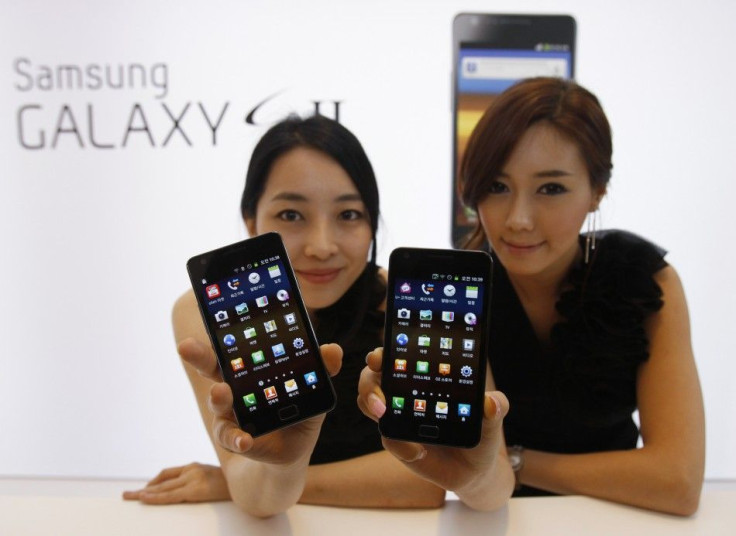Judge Rules Against Samsung In Apple Patent Case

A federal judge ruled against electronics company Samsung in a court case this week, saying the Korean tech giant is not allowed to see samples of future iPads and iPhones.
Judge Lucy Koh, from the U.S. District Court for the Northern District of California, ruled Samsung would not be able to get a sneak peak of Apple's upcoming products. The company originally asked to look at the future iPhone 5 and iPhone 3 to, prepare its defense against any preliminary injunction motion brought against Samsung by Apple for trademark or trade dress infringement.
In the original complaint and lawsuit from Apple, the Cupertino based company accused Samsung of slavishly copying Apple's design. Apple named Samsung Electronics, Samsung America and Samsung Telecommunications America as defendants and cited the Galaxy Tab and Epic 4G, Captivate, Indulge, Nexus S and Galaxy S 4G smartphones as examples of copied devices.
Apple then requested Samsung hand over its products, including the soon to be released Galaxy Tab 10.1 Koh granted the request because most of the devices Apple had sought were already released. Samsung soon after filed its motion requesting Apple hand over advanced copies of its iPhone 5 and iPad 3. Judge Koh has spoken and has not ruled in favor of Samsung.
Ultimately, the essence of Apple's claims is that Samsung has copied Apple's products. Common sense suggests that allegations of copying are necessarily directed at Apple's existing products, to which Samsung has access and could potentially mimic, and not at Apple's unreleased, inaccessible, next generation products, Koh wrote.
Koh is essentially saying Samsung cannot take a look at future products. This is what Apple argued when Samsung first filed this motion and it seems the court agrees with it. It wasn't all bad for Samsung as Koh said the company could file the motion when the products are released to the public.
The Court agrees that the possibility that Apple will introduce next generation iPhone and iPad products in the near future may have some effect on the likelihood of confusion analysis, Koh wrote. The Court also agrees that Samsung should be entitled to parity in discovery related to the preliminary injunction motion. This does not mean, however, that Samsung must have access to prototypes of Apple's next generation products.
Oddly, when this first came about, it seemed Judge Koh would force Apple to show their products. In an earlier statement, she said to Apple, And let me just say to counsel for Apple, I'm not going to be happy if you're not [sic] going to say what's good for the goose is not good for the gander. Okay?'
However, Koh said Apple's secretive process for announcing products should be protected until they are announced. These products, some analysts say, will not be released until the fall at the earliest.
Samsung did not respond to a request for comment.
Follow Gabriel Perna on Twitter at @GabrielSPerna
© Copyright IBTimes 2024. All rights reserved.





















